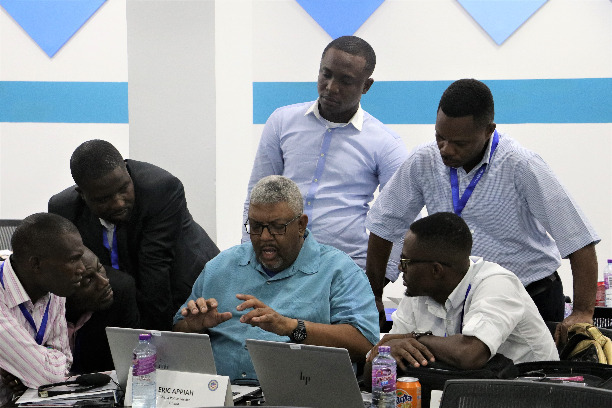Financial Crime - Don’t Be a Victim
Published October 23, 2019

Financial crime in developing countries, particularly Africa, is on the rise undermining gains in economic growth and negatively affecting development.
The Financial Crimes Investigation Course was delivered at the RTC from September 16 – 20, 2019 with 39 participants from Ghana. Participants who benefited from this course were drawn from various law enforcement and financial regulatory entities and from the Attorney General’s Department. Instructors from the Federal Bureau of Investigation (FBI) expertly shared their knowledge and experience on the requisite skills needed to enhance financial crime investigations.
.jpg)
As the financial industry experiences growth in West Africa, there are innovative products such as online banking, e-commerce, etc. that complement the traditional banking products such as ATMs, money transfers and cheques. Although there’s been a lot of expansion, fraudsters are also constantly devising new ways and strategies of diverting money. Financial crimes such as theft, deception, blackmail and money laundering are prevalent in the banking sector. Additionally, the rise of “Mobile Money” transfers is creating nuanced problems for law enforcement, since there is little to no regulation in this new sector. According to a 2018 report, Sub-Saharan Africa records the highest amount of money moved via mobile phones. The region is currently responsible for an astonishing 45.6% of mobile money activity in the world—an estimate of at least $26.8 billion in transaction value in 2018 (this figure excludes bank operated solutions). This definitely presents a challenge for law enforcement, since it is difficult to detect if funds are being laundered for illicit activities.
Forewarned is Forearmed
There is the need to monitor the way criminals trick victims into giving out confidential information and funds. We hope you find the following pointers useful;
- Social media – Please use caution while visiting social media platforms. Criminals easily trace victims based on public information shared on social media
- Impersonation - Criminals can pretend be a friend, relative or known individual asking for confidential information
- Fraud - Fake text messages or telephone calls appearing to be from a legitimate source such as a bank or mobile money vendor to induce individuals to reveal personal or financial information.
“Almost everyone is potentially at risk from financial crime today, and the effects on victims are often traumatic psychologically as well as financially.”
Paul Stanfield, INTERPOL’s Director for Organized and Emerging Crime
Did you participate in the recent Financial Crimes Investigation Course? Please share your thoughts with us, by writing to info@westafricartc.org!
